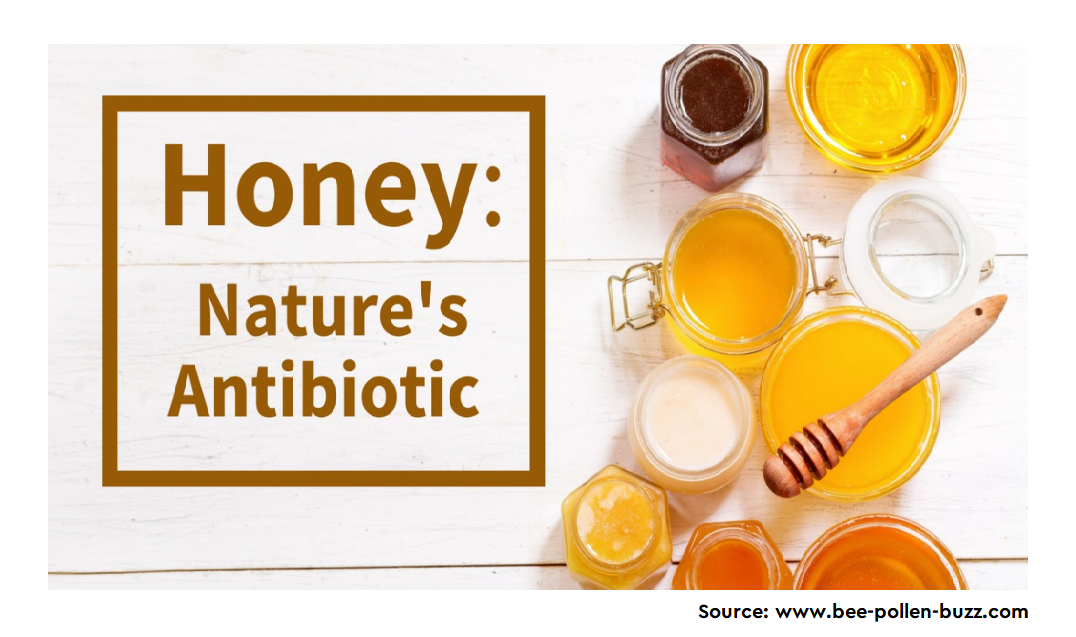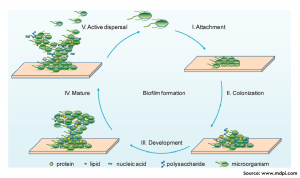The war between antibiotics and bacteria is a billion years old and continuing. From the 1950s to the 1970s, the maximum number of antibiotics got discovered to fight the deadly bugs. Still, humankind witnessed the rise of superbugs – those which are resistant to several antibiotics. The present situation is harrowing. The antibiotic drug pipeline is almost dry. Various alternatives to antibiotics are sought now- the honey being one among them.
Honey is used for therapeutic purposes for a very long time, especially for the treatment of wounds, owing to its antibacterial property. The high sugar concentration coupled with low water content in honey can stress the bacteria leading to loss of water inside the bacteria. This stunts the growth and multiplication of bacteria. The acidic property of the honey creates an unfavorable environment for bacterial growth. It contains many antibacterial compounds in minor amounts like hydrogen peroxide, phenolic acids, flavonoids, methylglyoxal, etc. Many studies are revealing the antibacterial mechanisms of Manuka honey across various microbes. It can cause structural and morphological changes in the bacterial cell leading to its death. It can also act upon the bacterial DNA and can cause disruptions in the bacterial growth cycle.
Though honey is advantageous in various aspects, it should be noted that only ‘Natural honey’ has those properties. In addition to that, the antibiotic activity varies among different varieties of honey-based on the presence and proportion of antibacterial compounds in it.
To read more, kindly visit the website of antibiotics journal LINK







